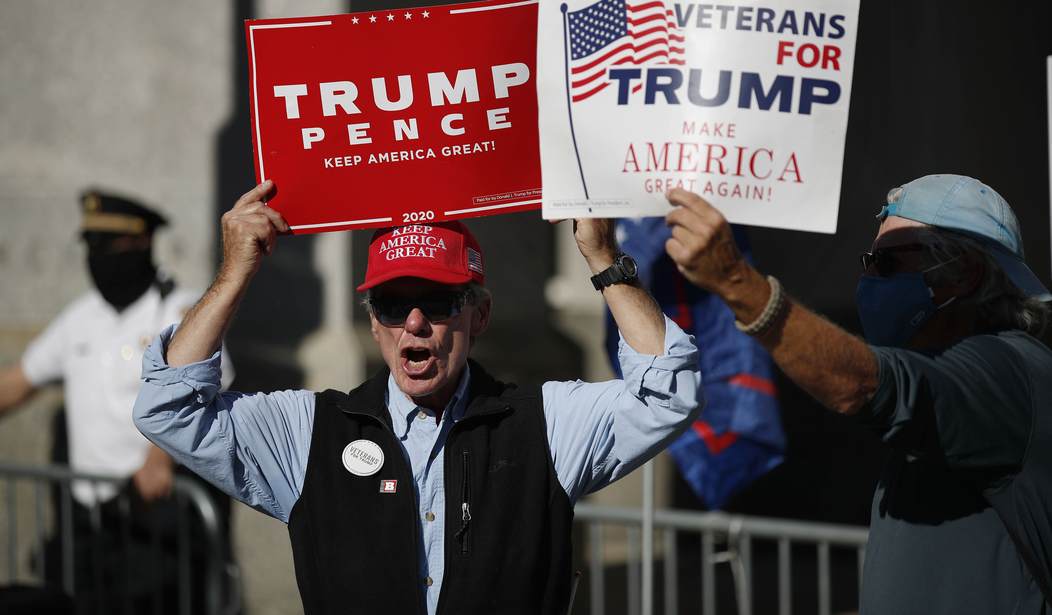As I detailed in this earlier story, several individuals — led by GOP House Member Mike Kelly — filed suit in Pennsylvania state court alleging that the “no excuse” absentee voting procedures adopted by the Pennsylvania General Assembly violate Sec. 14 of the Pennsylvania State Constitution. That provision establishes four narrow categories of “electors” who are eligible to request and vote by absentee ballot. The Plaintiffs — including two individuals who lost election contests for the United States House of Representatives and Pennsylvania House of Representatives — claim that all votes cast by individuals who were not eligible to vote under the provisions of the Sec. 14 of the Constitution, are invalid and should be removed from vote totals in all races.
The “no excuse” absentee ballot option was passed as part of Act 77. But at the same time, the legislators passed an identical amendment to Sec. 14 of the State Constitution to alter the language of that Section regarding authorized Absentee voting. The problem is that constitutional amendments must be passed in two successive sessions of the Pennsylvania Assembly, published in newspapers of general circulation in each County of Pennsylvania, and then be adopted by a majority of voters in the next general election before the amendments become effective. The proposed amendments to Sec. 14 have only been passed in one session of the Assembly, and have never been published or voted on by the public. Nevertheless, the state government put the provisions of Act 77 into immediate effect as if Sec. 14 had been amended.
The case is filed in the Court of Common Pleas in Allegheny County. This is the trial court level of the Pennsylvania court system. The judge assigned to the case is the Hon. Patricia McCullough.
As was reported earlier today by my RedState colleague Jennifer Oliver O’Connell, Judge McCollough issued an order early this morning in which she ordered the following:
- She set an evidentiary hearing for this Friday, November 27, 2020.
- To the extent there are any further steps to be taken in certifying the results of the Presidential election, the defendants — the State of Pennsylvania, the Pennsylvania General Assembly, Governor Frank Wolf, and Secretary of the Commonwealth Kathy Boockvar, are all enjoined from doing so pending the evidentiary hearing.
- Defendants are directed to file an answer and memorandum of law responding to the complaint by 5:00 pm today.
Among the curiosities of the Pennsylvania state court system is the fact that judges at all levels in the state judiciary are elected to office, and they do so as partisan members of political parties. Many other states elect judges — or re-elect judges after they are first appointed — but few have judgeships filled as a partisan political exercise with members of political parties competing with each other in a general election.
Allegheny County is an overwhelmingly Democrat county that voted 59% to 39% for Joe Biden.
Yet, Judge McCullough was elected as a Republican. She was first appointed to the bench in 2005 and was last re-elected in 2019. Her current term of office expires in 2030.
Even though the various defendants in the case have now been ordered by Judge McCullough to file an answer and memorandum of law in response to the plaintiffs’ filing, on November 23, they opted to instead file a response and objections in the Commonwealth Court of Pennsylvania — which is one of two intermediate appeals courts in the Pennsylvania judicial system. The Commonwealth Court of Pennsylvania is given authority by statute to hear all appeals concerning of final orders of certain state agencies and certain designated cases from the Courts of Common Pleas involving governmental legal questions and regulations.
Again, the nine Judges of the Commonwealth Court are elected to those positions. Currently, there are seven Republicans and two Democrats on this Court.
The response makes the following claims:
- The Legislature included in Act 77 a provision that any challenge had to be brought within 180 days of its passage, and that time period expired before this suit was brought.
- The plaintiffs lack standing because the complaint sets forth no particularized interest of the plaintiffs that is different than the generalized interest of all voters.
- Challenges to Act 77 on constitutional grounds could only be filed in the Pennsylvania Supreme Court pursuant to a provision in the statute.
- Resolutions and remedies in election disputes are provided for by statute, and no statute authorizes the remedy sought by plaintiffs.
- The equitable doctrine of “laches” bars relief — “laches” provides that a litigant cannot “sit on their rights” with regard to a known legal claim if the delay works to the unfair disadvantage of the opponent.
- Act 77 did not alter the provision of the Constitution for “absentee voting.” It simply created a new class of electors in Pennsylvania — those who prefer to vote by mail and not physically appear at voting precincts.
As noted, it was after this response was filed in the Commonwealth Court that Judge McCullough issued her order directing the defendants to file a response in her Court. The first issue that is going to need to be resolved is where this litigation will take place.
As for the claims raised by the defendants, it strikes me as odd — as a legal matter — that a legislature can place some meaningful time limit on the ability of litigants to challenge the constitutionality of legislation. If it was unconstitutional when passed, it doesn’t become constitutional by virtue of the passage of time. If Act 77 runs contrary to the provisions of the Pennsylvania Consitution, it did so no less on day 181 than it did on day 1 following passage. I think the same response would apply to the “laches” defense.
As for the standing claim, I would need to do more research but I am again scratching my head over the idea that a legislature can pass, and a governor can sign an unconstitutional law, but no one has standing to bring that to the attention of the courts to seek redress because all citizens of Pennsylvania are equally burdened?
And the response ignores the fact that two plaintiffs lost their elections, and can likely show factually that they did so by margins that would evaporate if no-excuse mail-in ballots that cast votes in their races were invalid on the basis that they were unconstitutional. On that basis, those two plaintiffs clearly have suffered an injury distinct from all electors in Pennsylvania.
The next 48 hours will be interesting to watch unfold with regard to this matter.














Join the conversation as a VIP Member